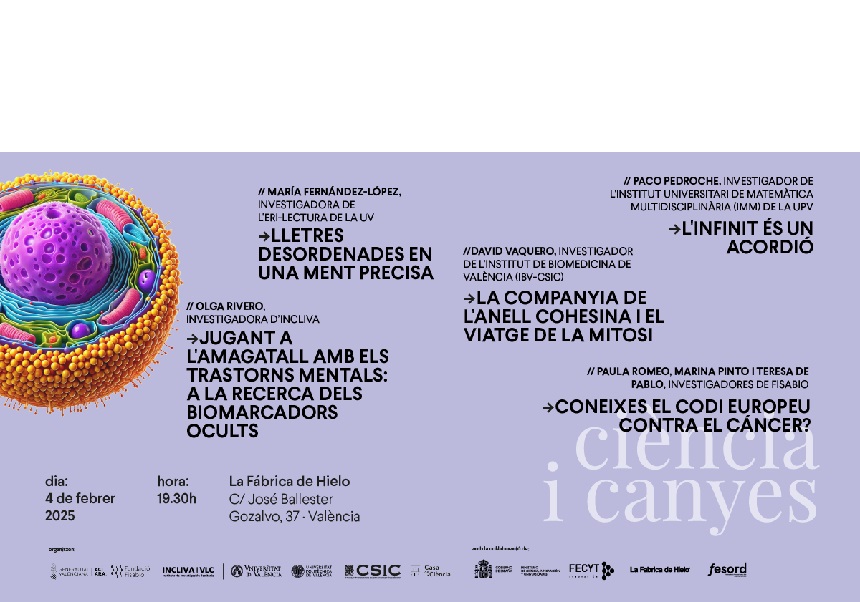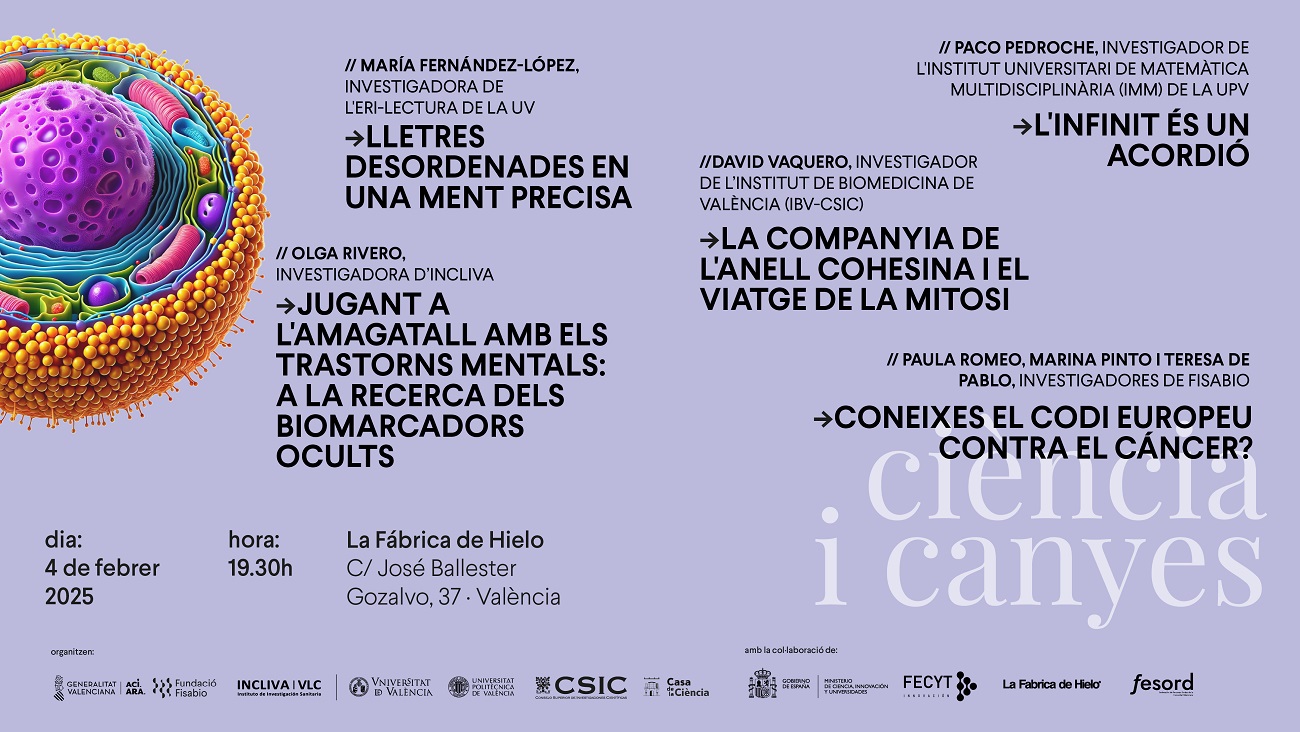
Five research institutions, including the University of Valencia, have organised a new session of Ciència i Canyes (Science and Beers) on Tuesday, 4 February at 7.30 p.m., at the Fábrica de Hielo in Valencia. This event for science popularisation features specialists from various fields who present knowledge in a playful manner through brief talks. The event will be simultaneously translated into sign language by FESORD and admission will be free until full capacity is reached.
The event is also organised by the Foundation for the Promotion of Health and Biomedical Research of the Valencian Community (FISABIO), the Polytechnic University of Valencia (UPV), the delegation of the Spanish National Research Council (CSIC) in the Valencian Community and the INCLIVA Health Research Institute. It is supported by the Spanish Foundation for Science and Technology-Ministry of Science, Innovation and Universities.
Maria Fernández-López, researcher atthe Interdisciplinary Research Structure (ERI) for Readingof the University of Valencia, will explain the incredible flexibility of the human brain and its ability to read a word even when the letters are in the wrong order. In her talk "Jumbled Letters in a Precise Mind," key experiments that show this adaptability will be explained, as well as the reasons why the human brain can easily perform these ‘tricks’ even when the words appear chaotic. The talk will examine the cognitive and contextual keys that allow us to decipher the chaos, how previous experience with language influences this ability, and what this skill reveals about the functioning of perception and reading.
David Vaquero Pelaz, postdoctoral researcher at the Cell Division and Cohesinopathies Unit of the Valencia Biomedicine Institute (IBV-CSIC), will discuss how something as common as the yeast used in baking or brewing is employed in the laboratory to study one of the most important phases of the cell cycle: mitosis. In his talk, “The Fellowship of the Cohesin Ring and the Journey of Mitosis”, attendees will learn, with help from the characters of The Lord of the Rings, how cells undergo a formidable cyclical journey during which they divide to create two new cells, and how a researcher in basic science contributes to society by expanding knowledge.
Additionally, Paco Pedroche, researcher at the Multidisciplinary Mathematics Institute (UMM) of the Polytechnic University of Valencia, will deliver the talk "Infinity is an Accordion"; Paula Romeo, Marina Pinto and Teresa de Pablo (researchers at FISABIO) will discuss the European Code Against Cancer; and Olga Rivero from INCLIVA will explain the hidden biomarkers of mental disorders.
Images:
.jpg)











